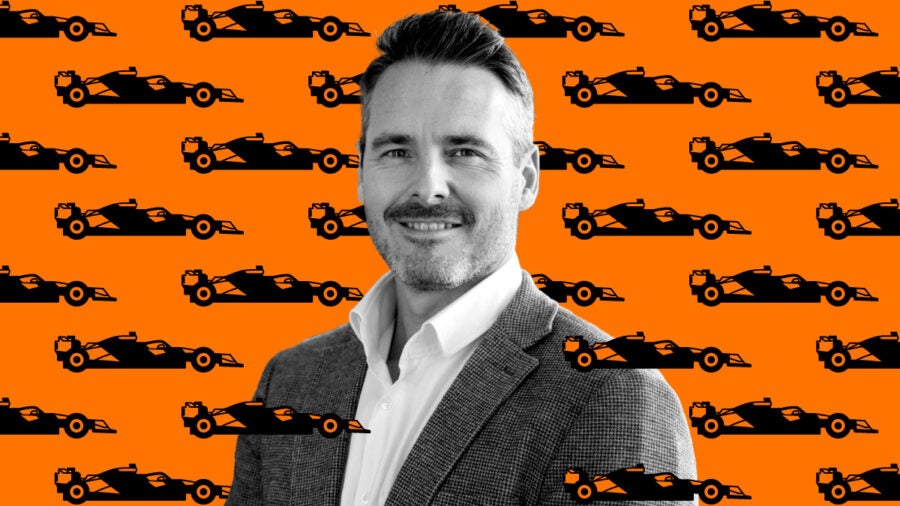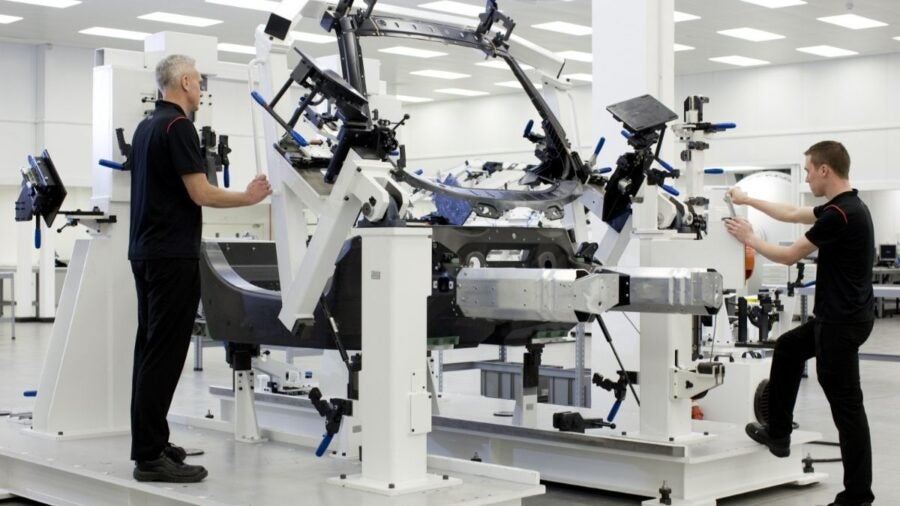
In Formula One, a fraction of a second can be the difference between success and failure. Six-tenths of a second were all that stood between McLaren’s Oscar Piastri and a first-place finish at the Belgian Grand Prix, the final race before the summer break.
F1 is a sport that’s focused on the fine margins – a slight tweak to the car or a faster pit stop can decide the podium positions. It’s a feature of the sport that Daniel Gallo, chief people and sustainability officer at McLaren Racing, claims has shaped his approach to HR.
“In sport, everything we do has to be about delivering performance,” he says. This remains true whether it’s referring to the performance of the drivers, the car or the team working in the McLaren Technology Centre in Woking.
Putting employee wellbeing in pole position
Gallo doesn’t oversee McLaren’s drivers Piastri and Lando Norris – that responsibility falls to team principal Andrea Stella. “I’m better suited to managing the workforce,” he says. “I’ll leave the elite athletes to people better qualified than me.”
However, Gallo believes the effort and attention that’s paid to the welfare of its driving stars should also be provided to McLaren’s wider workforce. “We need to invest in the welfare of our people,” he says. “We’re very clear that human performance equals car performance and that’s a fundamental competitive differentiator for us.”
Human performance equals car performance; that’s a fundamental competitive differentiator for us
Some of McLaren’s strategies for looking after the physical and mental welfare of drivers have also been applied to off-track staff. McLaren employees have access to in-house doctors, occupational nurses, psychologists and physiotherapists. Manufacturing staff are just as likely to consult McLaren’s on-site strength and conditioning coaches as its athletes.
Nutrition is also a core element of McLaren’s wellbeing efforts. While Gallo acknowledges that people should be trusted to make their own dietary decisions, he stresses that diet is a “key part of how you physically feel and your mental functioning”.
“The same care and attention that goes into the diet that is prepared for our race team and athletes is given to those back in the factory. This is necessary because some of the work is very physically and mentally demanding,” he says.
In two months, McLaren will open a new wellness facility at its Surrey base, which will include a “state-of-the-art” gym and medical facilities.
Employee wellbeing is a particular focus for Gallo, due to the high-intensity nature of working in F1. During the season, the hectic race calendar means staff often jet between Saudi Arabia, Australia and Japan in the space of a month. On the race weekend, mechanics might be required to work around the clock to make repairs to the car.

“Working in Formula One is intense and we expect a lot from our people, so it’s not the environment for everyone,” Gallo says. “Obviously, there are some wonderful elements of working in this sport, but it’s not a nine-to-five job. It’s high-demand and you will need to work weekends and some late nights.”
Encouraging people to put in extra effort is far easier when your team is doing well. It’s much more challenging when success is proving harder to come by – as it did in the 2022 season for McLaren when the team only recorded one podium finish.
“Success in sport is never linear, you have to be resilient as an organisation and as individuals,” Gallo says. Although emotional investment in the team is encouraged, this can mean people feel disappointment “very acutely” after a poor result at the weekend, he adds.
To help staff manage the “extreme highs and lows” of working in F1, McLaren promotes a “no-blame” culture. “We are going to make mistakes, that’s just the nature of innovation and pushing boundaries,” Gallo says. “It’s about owning those mistakes and viewing failure as an opportunity to learn, adapt, apply and then go again.”
It’s important to be transparent about the realities of working in the motorsport industry during the recruitment process, Gallo says. This allows people to “deselect” from the process at an early stage, if they aren’t prepared.
This ensures that the company only recruits those that are willing to go the extra mile. However, Gallo recognises the impact this can have on its employees’ personal lives. “We acknowledge that for people to give discretionary effort to us as an organisation, it requires support and sacrifice from their family and friends,” he says.
In recognition of this, McLaren regularly hosts race viewings at its centre in Woking, which friends and family can join. The end-of-season celebrations are also open to partners and friends.
Creating a winning culture
While Gallo claims there is no “silver bullet or special sauce” to creating a high-performance culture, “little details”, like those mentioned above, make a difference.
When each F1 team employs people with similar skills and has to operate under the same budgetary restrictions, culture is the only real differentiator, according to Gallo. “Culture isn’t something you can buy. It’s something you have to painstakingly build and invest in,” he adds. “It should make people want to stay with you for the long term and stability in the workforce is key to performance.”
McLaren’s drivers, Norris and Piastri, play an important role in helping define and exhibit the company ethos but, for Gallo, culture is something that has to come from the top. “Developing high-performance teams is not the preserve of HR – that concept is driven by the CEO and the executive team,” he says.
Despite this, HR remains a key cultural contributor in Gallo’s eyes and the function should advise and support the leadership team in creating cultural change. He says: “HR definitely has a key role in helping translate the vision into a reality within the workforce. But it’s far more powerful when it’s not seen as an HR initiative.”
Culture isn’t something you can buy. It’s something you have to painstakingly build and invest in
Gallo spent 14 years working in the corporate HR space, for the likes of Barclays, Vodafone and Manchester Airports Group, prior to transitioning into the sports world as HR director for Liverpool Football Club. The biggest difference between working in these two spaces is the emphasis sports teams put on simplicity.
He says: “When you’re operating in a fast-paced professional sports team, you have to compete with others to be heard. If your concept is too complex, then you’re going to struggle to get the buy-in and the air time in order to move it forward.”
Gallo believes this is something that HR leaders in the corporate world can learn from sports teams. He now looks back critically at the lengthy PowerPoint presentations and waterfall charts he once used when implementing cultural change programmes at previous organisations.
“The HR profession needs to learn not to intellectualise concepts or make them overly academic,” he says. “That doesn’t mean that they’re simple in nature or impact, it just requires sharing concepts in a much simpler fashion.”
Even something as simple as changing the language used when defining organisational culture can make a difference. “Being careful, considered and consistent in the words you use within an organisation costs nothing,” Gallo says. “It’s not a big initiative that you need to put hundreds of pounds behind. It just takes deliberate effort and commitment to reinforcing the same messages.”
While the changes Gallo has implemented at McLaren may sound small, they’re having an impact on the track – the team currently sits second in the Constructors’ Championship. Gallo’s methods show that, by having a clearer focus on the end result, HR can have an outsized impact in helping their organisations return to winning ways.

In Formula One, a fraction of a second can be the difference between success and failure. Six-tenths of a second were all that stood between McLaren’s Oscar Piastri and a first-place finish at the Belgian Grand Prix, the final race before the summer break.
F1 is a sport that’s focused on the fine margins – a slight tweak to the car or a faster pit stop can decide the podium positions. It’s a feature of the sport that Daniel Gallo, chief people and sustainability officer at McLaren Racing, claims has shaped his approach to HR.
“In sport, everything we do has to be about delivering performance,” he says. This remains true whether it’s referring to the performance of the drivers, the car or the team working in the McLaren Technology Centre in Woking.





